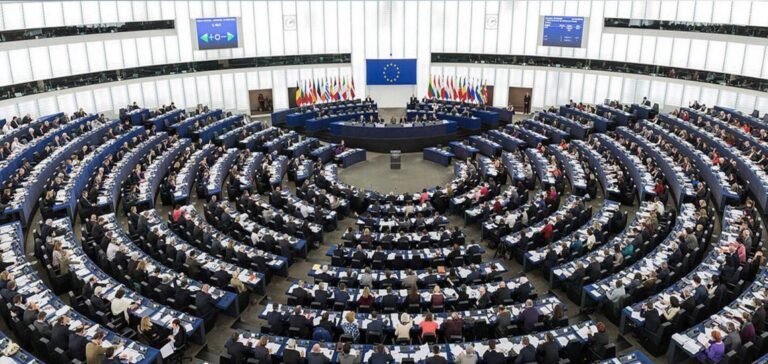In the midst of soaring gas and electricity prices, and accelerating the growth of renewables. Meeting in plenary session in Strasbourg, MEPs adopted their position on these two key parts of the European Commission’s climate plan, paving the way for negotiations between the Parliament and the Member States to finalize the text.
In its draft, Brussels set a binding target of 40% of renewables in the European energy mix by 2030, against 22% currently.
While this figure was endorsed at the end of June by the EU-27, the text voted by MEPs (418 votes to 109, with 111 abstentions) raises the target to 45% by the end of the decade.
The war in Ukraine, which pushes the EU to get rid of its dependence on Russian gas, “makes necessary a broader reorientation of our energy policy and an accelerated development of renewables, to provide more independence and security”, observed Markus Pieper (EPP, right), rapporteur of the text.
In particular, each state would be required to reduce greenhouse gas emissions in transport by 16% (compared to the 13% proposed by the Commission), thanks to the increased use of biofuels and hydrogen – whose development the EU wants to boost.
In addition, the Commission proposed in July 2021 to reduce final energy consumption in the EU by 36% in 2030 compared to a “baseline scenario” developed in 2007 – and corresponding to a 9% reduction compared to another scenario established in 2020. The idea is to intensify energy savings and the use of less energy-intensive technologies to change the trajectory.
This continental target, which is not broken down by country, was also adopted as it was at the end of June by the European energy ministers, despite calls from Brussels to raise it significantly in view of the consequences of the war in Ukraine.
In contrast, the text voted by MEPs (469 votes to 93, with 82 abstentions) calls for a reduction of at least 40% compared to the 2007 scenario (at least 14.5% compared to the 2020 scenario), with binding rather than indicative national contributions, accompanied by a mandatory energy savings target higher than what the Commission had called for.
The Parliament wants to force states to reduce the consumption of their public sector by 2% per year (compared to 1.5% in the Brussels draft), to impose the renovation of at least 3% of the total surface area of public buildings each year, including social housing, and to force computer data centers – which are very energy intensive – to use the heat they give off to heat other buildings.





















